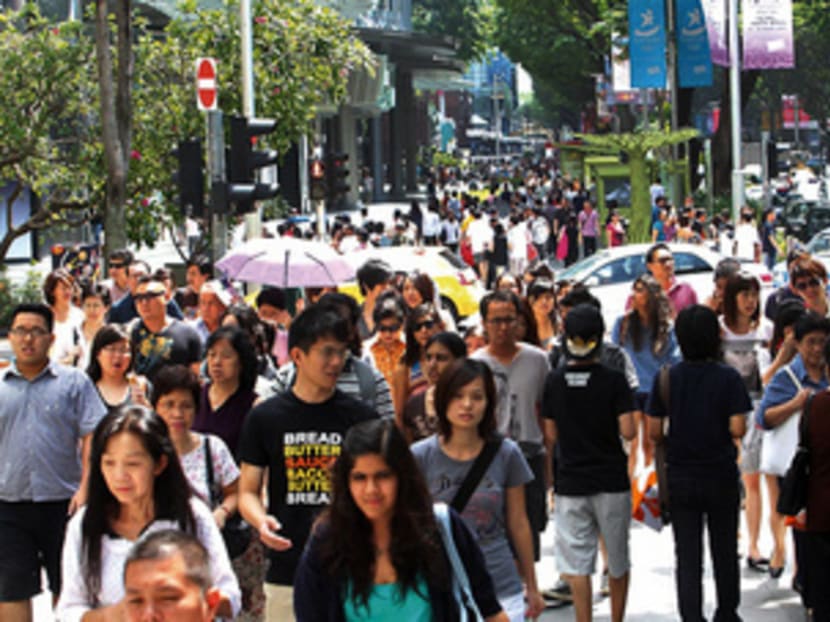More Singaporeans turning to online shopping for better bargains
SINGAPORE — Consumers in the Republic shop online to get better bargains and are among the world’s fastest adopters of mobile shopping despite being relatively new to e-commerce, business consultancy PwC said in its Total Retail survey published yesterday.

PwC’s Total Retail survey published on Thursday (June 2) showed that 60 per cent of consumers in Singapore buy products online at least once a month. TODAY file photo
SINGAPORE — Consumers in the Republic shop online to get better bargains and are among the world’s fastest adopters of mobile shopping despite being relatively new to e-commerce, business consultancy PwC said in its Total Retail survey published yesterday.
PwC said the survey showed 60 per cent of consumers in Singapore buy products online at least once a month. It polled nearly 23,000 online shoppers in 25 countries, underlining the changing consumer behaviours that will drive the coming global retail revolution. Of the 23,000 respondents, PwC said, 500 were from Singapore and 1,500 from South-east Asia.
Respondents in Singapore are more active than those globally in making purchases on their smartphones. When asked how often they buy products online via their smartphones, 38 per cent of respondents said they did so at least once a month compared to 28 per cent globally and 37 per cent in South-east Asia.
PwC said social media is exerting a stronger influence on online shopping behaviour among locals. Some 57 per cent of Singapore respondents use social media to read reviews (45 per cent globally, 60 per cent in the region) and access promotional offerings (44 per cent globally, 58 per cent in the region).
According to the report, consumers here are not just using their mobile devices to purchase online, but also to get pricing and product information.
“With the high Internet penetration in Singapore, consumers can easily make purchases or find information online via the PC or mobile devices,” said Mr Charles Loh, South East Asia Consumer and Industrial Products Consulting Leader at PwC. “It’s clear that cost remains a key driver when making a purchase online. In order for retailers to remain competitive, they must understand the trend and act on it.”
Retailers must also re-assess their corporate strategy and transform their businesses to suit the digital age, he said. “Retail companies are often faced with a dilemma whether they should embark on the online journey, and many have taken the tactical approach of starting online versions of the brick-and-mortar businesses with very little additional value to shoppers,” he noted.
The most popular out-of-country online purchases among Singapore respondents are clothing and footwear (58 per cent in Singapore, 51 per cent globally), followed by books, music, movies and video games (40 per cent in Singapore, 40 per cent globally), with health and beauty coming in third (39 per cent in Singapore, 31 per cent globally).
According to the report, although Singapore respondents prefer shopping for clothing and footwear in-store (45 per cent) to online (30 per cent), 55 per cent, or more than half, indicated that the main driver for buying online is that the products are often cheaper. This is 12 points higher than the global result of 43 per cent and 45 per cent in the region.
“Retail consumers have embraced online shopping as a norm and are driving the need for further innovation. Retailers need to keep up in the online space in this fast-moving industry. However, retailers should not neglect the human aspects of the consumer experience,” said Mr Lee Kok Hooi, Retail & Consumer Leader at PwC Singapore.
Despite the digital revolution, there is still a place for in-store shopping and consumers value a holistic experience, he added, saying it is imperative for retailers to deliver end-to-end services to consumers both online and offline. Rumi Hardasmalani








